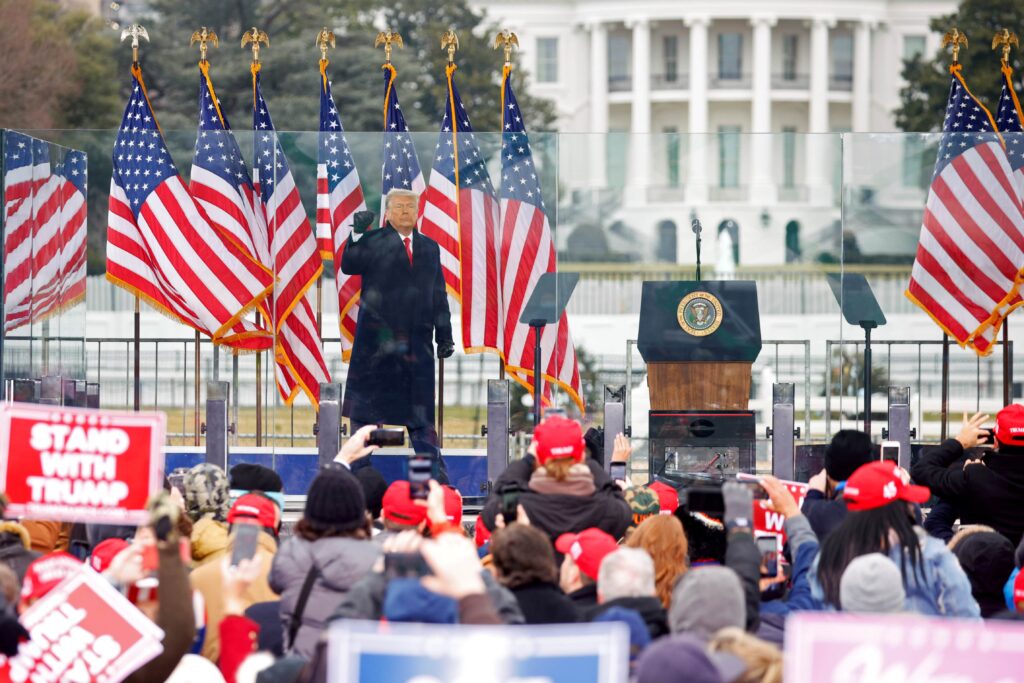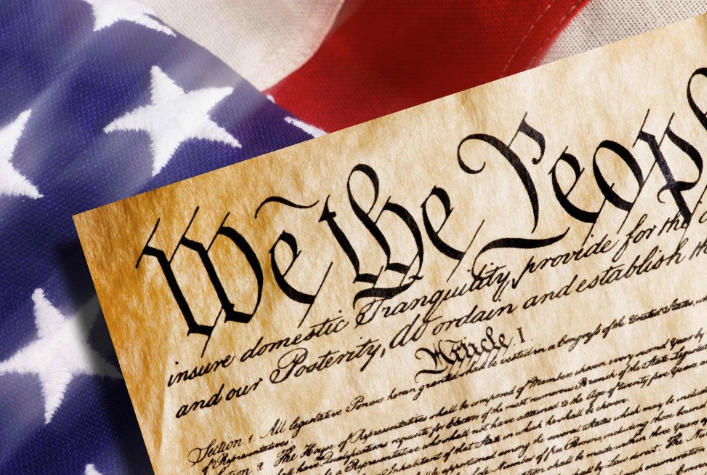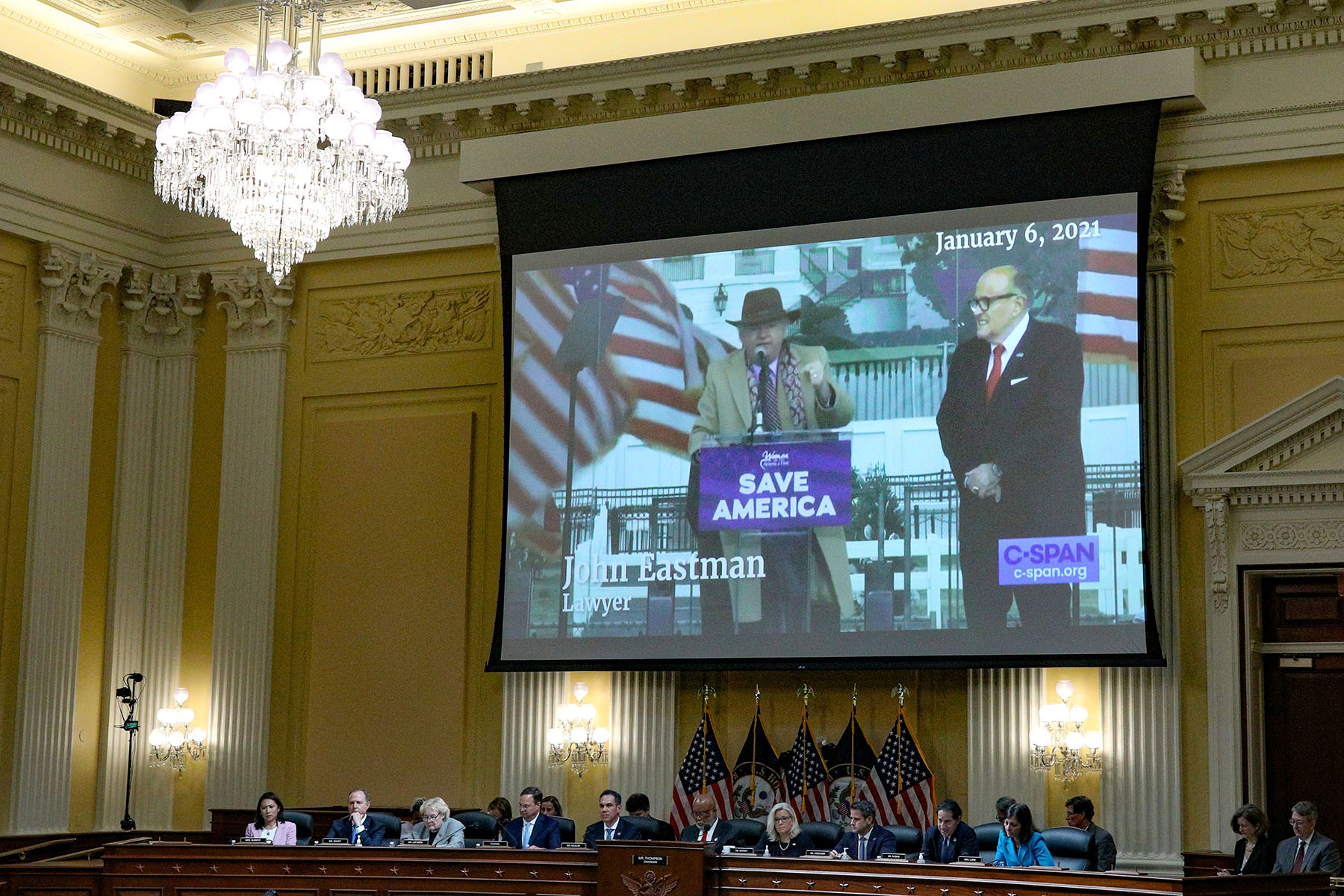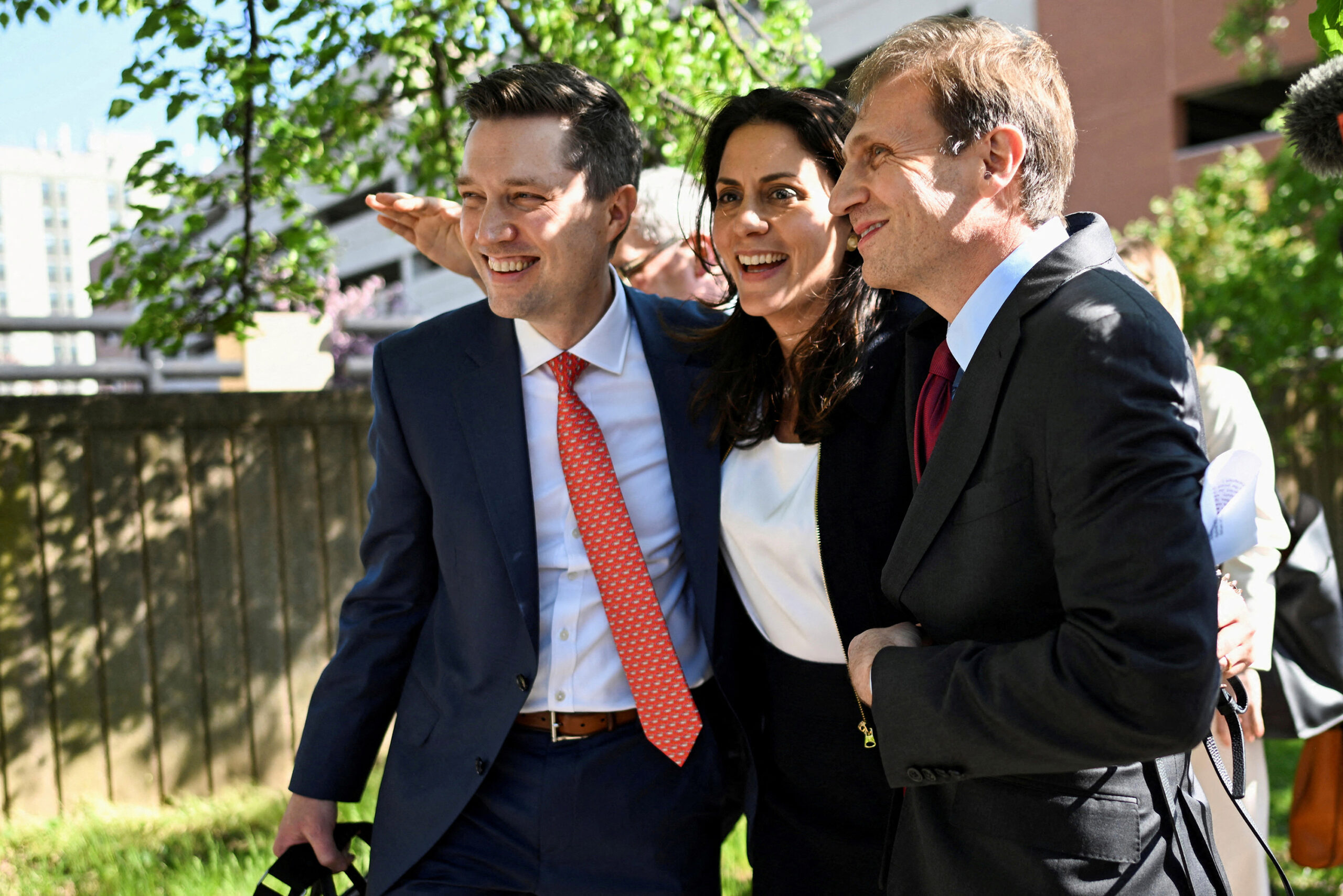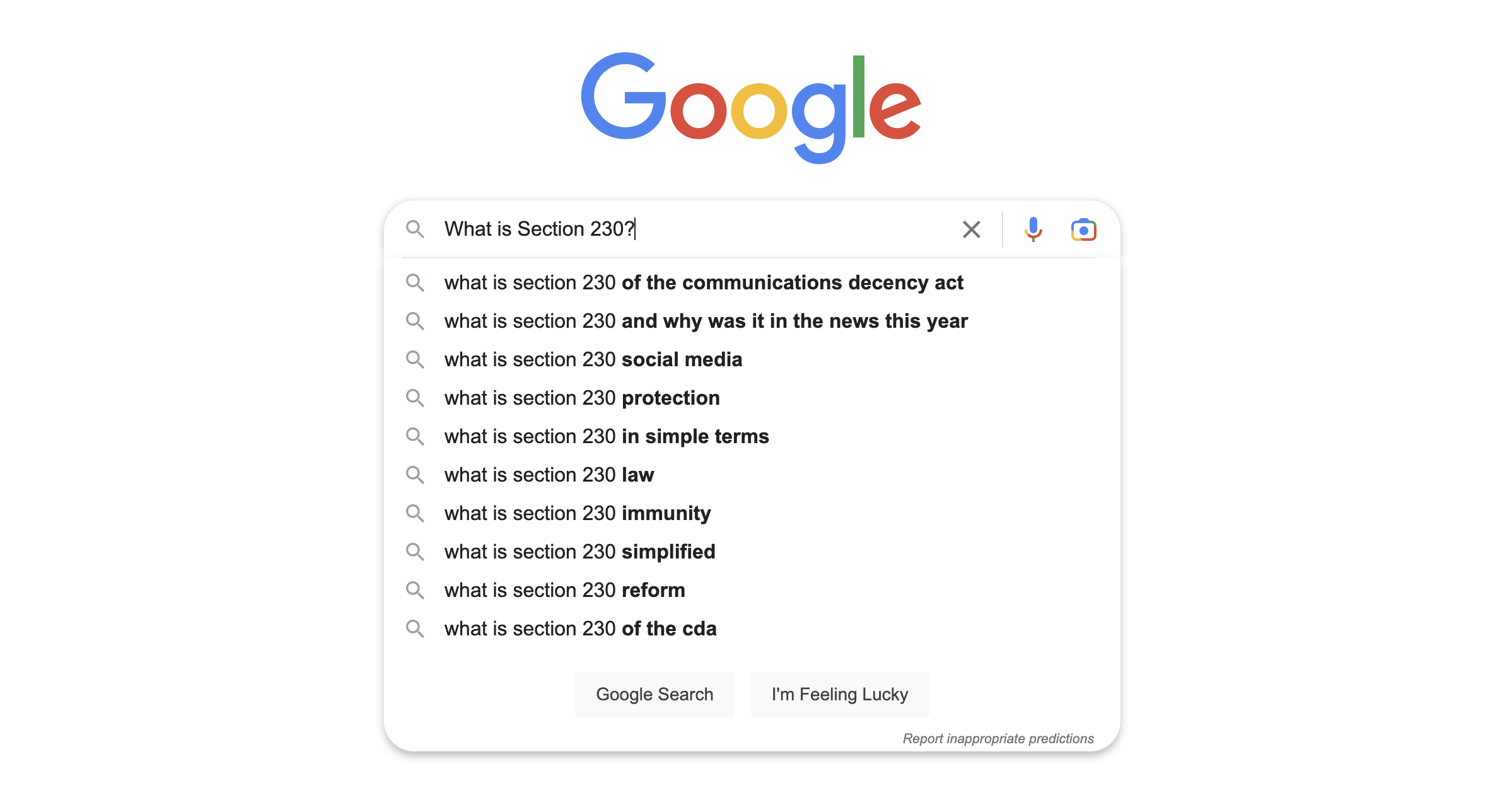By David L. Hudson, Jr.
On January 6th, President Donald Trump held a rally near the White House and urged his supporters to march on the Capitol where members of Congress were certifying the results of the 2020 presidential election. “We’re going to walk down, and I’ll be there with you,” he said. “You’ll never take back our country with weakness. You have to show strength, and you have to be strong.”
Following his remarks, thousands of Trump supporters marched to the U.S. Capitol grounds. Several hundred members of the enraged mob broke into the Capitol, smashing windows and trashing offices. The resulting melee resulted in a woman shot to death inside the Capitol, the deaths of four others including a Capitol police officer, and constituted what The Wall Street Journal called “The Disgrace on Capitol Hill.”
Many have condemned the actions of President Donald J. Trump. They claim that he fanned the flames of his supporters’ discontent with his consistent refrains of a rigged election and a “fraud” of an election. Many also believe that Trump’s incendiary language incited the rioters. The New York Times Editorial Board claimed that the President “incited his followers to violence.” The Washington Post wrote that Trump “caused the assault on the Capital.”
Social media giants Facebook and Twitter removed or blocked Trump from its platforms. Rep. Omar Ilhan of Minnesota even introduced a resolution calling for President Trump’s impeachment for inciting the protestors to riot at the Capital Building. His former U.S. Attorney General Bill Barr told POLITICO that Trump had committed a “betrayal of his office.” More lawmakers assert that Trump should be removed from office under the 25th Amendment, and the Department of Justice has not ruled out bringing incitement charges against Trump.
The High Hurdle of Brandenburg
There is no doubt that Trump’s speech was inappropriate, imprudent, rash, offensive, and even repugnant. But, it is more difficult to determine whether Trump’s comments constitute incitement to imminent lawless action, a type of speech not protected by the First Amendment. The U.S. Supreme Court explained in Brandenburg v. Ohio (1969) that “the constitutional guarantees of free speech and free press do not permit a State to forbid or proscribe advocacy of the use of force or of law violation except where such advocacy is directed to inciting or producing imminent lawless action and is likely to incite or produce such action.” The Court’s ruling in Brandenburg meant that KKK leader Clarence Brandenburg’s statements such as “it’s possible that there might have to be some revengeance taken” did not amount to criminal syndicalism under Ohio law.
A few years later, the Court clarified in Hess v. Indiana (1973) that for speech to constitute unprotected incitement it must advocate for illegal action immediately to take place. The Court ruled that Gregory Hess’ statement at an anti-war protest “we’ll take the fucking street later” was not incitement but rather “nothing more than advocacy of illegal action at some indefinite future time.”
The Brandenburg test “provides much First Amendment protection for controversial speech — particularly political speech that challenges existing government and law.”
Brandenburg and subsequent decisions have emphasized several requirements, all of which must be present for speech to lose First Amendment protection. The speaker must intend to and actually use words that rally people to take illegal action. The danger must be imminent—not in the indefinite future. And the words must be uttered in a situation in which violence is likely to happen. Speakers often prevail in these cases because of the inability to prove that the language used was a call to violence or that the illegal action would take place immediately. So, for example, it’s unlikely that incendiary language that Trump used before January 6th would strictly meet the imminence requirement; Brandenburg suggests that only language used by Trump on the day of the Capitol invasion would suffice. And a court would have to closely parse the meaning of what he said that morning. Did he clearly command people to illegal action?
This is not the first time that Trump has been accused of inciting a riot. Three protestors at a November 2016 Trump rally in Louisville, Kentucky, sued Trump in federal court, contending that his speech caused a throng of pro-Trump rally attendees to eject them from the rally with physical force. During the rally, Trump spoke for about 35 minutes. A few protestors showed up. Then-candidate Trump exclaimed, “Get ’em out of here.” In response, members of the audience assaulted the protestors and physically removed them.
A federal district court ruled that the plaintiffs’ claims could proceed. However, a three-judge panel of the U.S. Court of Appeals for the Sixth Circuit ruled in Nwanguma v. Trump that Trump’s speech did not cause incitement under the Brandenburg standard and, therefore, qualified as protected speech under the First Amendment.
The appeals court pointed out that Trump also specifically said, “Don’t hurt ’em” in reference to the protestors. “If words have any meaning, the admonition, ‘Don’t hurt ’em’ cannot be reasonably construed as an urging to ‘Hurt ’em’” the appeals court wrote. The appeals court concluded that Trump’s speech “is protected and therefore not actionable as an incitement to riot.”
The Nwanguma v. Trump case involved a civil suit for damages against then-candidate Trump. A criminal case against the President under some sort of inciting to riot statute is in a different context. But, under any criminal prosecution, prosecutors must establish that Trump met the statutory elements of the criminal offense. Additionally, the high hurdle of Brandenburg remains, as the criminal statutes must comport with Brandenburg or remain susceptible to a constitutional challenge.
Opinions of First Amendment Experts
First Amendment experts differ on whether Trump’s comments cross the line from protected speech to unprotected incitement under Brandenburg and Hess.
“Trump’s remarks were an incitement within the unprotected boundaries of Brandenburg — because he dispatched his followers directly and immediately to the Capitol, and he did so for a specific unlawful purpose: to interrupt the counting of electoral votes,” said Kevin Francis O’Neill, a law professor at Cleveland Marshall College of Law.
“This is different from Hess v. Indiana, where the defendant said to his followers: ‘We’ll take the fucking street later,’” said O’Neill. “The Hess defendant escaped conviction because he called for lawless action at some indefinite point in the future; he did not, as Brandenburg requires, exhort his followers to imminent lawlessness. Unlike Hess, the Trump situation satisfies the imminence requirement, which is always the most difficult element to satisfy under Brandenburg.”
However, First Amendment expert Clay Calvert, a law professor at the University of Florida, notes it will be difficult to establish incitement under the Brandenburg-Hess framework. “Focusing only on Trump’s rally speech, proving the intent element —the requirement that the words Trump used were directed to cause imminent violence—would be the toughest hurdle.” Calvert notes that Trump “never explicitly called for violence during his rally, never used a command like ‘go down there and attack them.’”
In fact, Trump later tweeted that the protestors should go home and not engage in violence against law enforcement officers. “I am asking for everyone at the U.S. Capitol to remain peaceful. No violence! Remember, WE are the Party of Law & Order – respect the Law and our great men and women in Blue.”
“It would be a very tough case—there’s a difference between heated political rhetoric and actually directing one’s followers to commit violence,” said Calvert. “Trump sent them off down the street, for sure, with his words, but did he send them off to commit violence? That’s the trickier part to prove.”
David L. Hudson, Jr. is an assistant professor of law at Belmont University. He is the author of First Amendment: Freedom of Speech (Thomson Reuters, 2012) and a co-editor of The Encyclopedia of the First Amendment (CQ Press, 2008).
Tags
